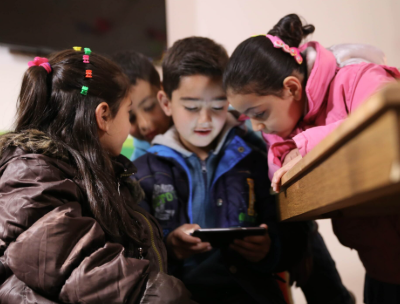Introduction
In regions affected by conflict or crisis, access to education is often severely disrupted. Yet, education remains a vital tool for stability, hope, and long-term recovery. Educational technology (EdTech) is offering innovative ways to overcome these challenges, providing flexible, accessible, and resilient learning solutions. By harnessing the power of digital tools, EdTech is supporting learners and educators in some of the world’s most vulnerable settings.
Flexible Learning in Unstable Environments
Traditional schooling may be impossible in conflict zones due to displacement, damaged infrastructure, or safety concerns. EdTech provides alternatives through mobile learning apps, radio-based lessons, offline e-learning content, and solar-powered devices. These tools allow learning to continue even when classrooms are not accessible.
Low-Bandwidth and Offline Solutions
Recognizing limited internet access in many crisis zones, developers are creating platforms that function offline or require minimal data. Pre-loaded tablets, USB content libraries, and downloadable learning packets enable students to study at their own pace. Teachers can also access training materials without needing a continuous connection.
Multilingual and Culturally Responsive Content
EdTech platforms are increasingly incorporating multilingual options and localized content to reflect the cultural and linguistic diversity of displaced learners. This helps maintain a sense of identity and inclusion while supporting literacy and numeracy in both local and international languages.
Teacher Support and Training
Educators working in crisis areas often need additional support. EdTech provides professional development opportunities through remote workshops, instructional videos, and peer mentoring networks. These resources equip teachers to deliver effective lessons and adapt to changing circumstances.
Creating Safe and Inclusive Learning Spaces
Digital learning tools can be designed to address trauma, promote well-being, and foster social-emotional learning. Interactive games, storytelling apps, and virtual classrooms offer structured learning experiences that help restore normalcy and promote psychological recovery.
Partnering with NGOs and Humanitarian Agencies
Many EdTech initiatives in crisis zones operate in collaboration with humanitarian organizations. These partnerships ensure that programs are responsive to local needs, culturally appropriate, and aligned with broader recovery and protection efforts.
Monitoring Progress and Impact
Through data collection and user feedback, EdTech tools can help organizations monitor educational access, identify learning gaps, and improve program design. This adaptive approach ensures that support remains relevant and effective over time.
Conclusion
EdTech is playing a critical role in sustaining education in conflict and crisis areas. By offering adaptable, inclusive, and resource-efficient solutions, it helps protect learning continuity for children and youth facing some of the toughest circumstances. With continued innovation and collaboration, digital tools will remain essential in bringing hope and opportunity through education to those who need it most.


